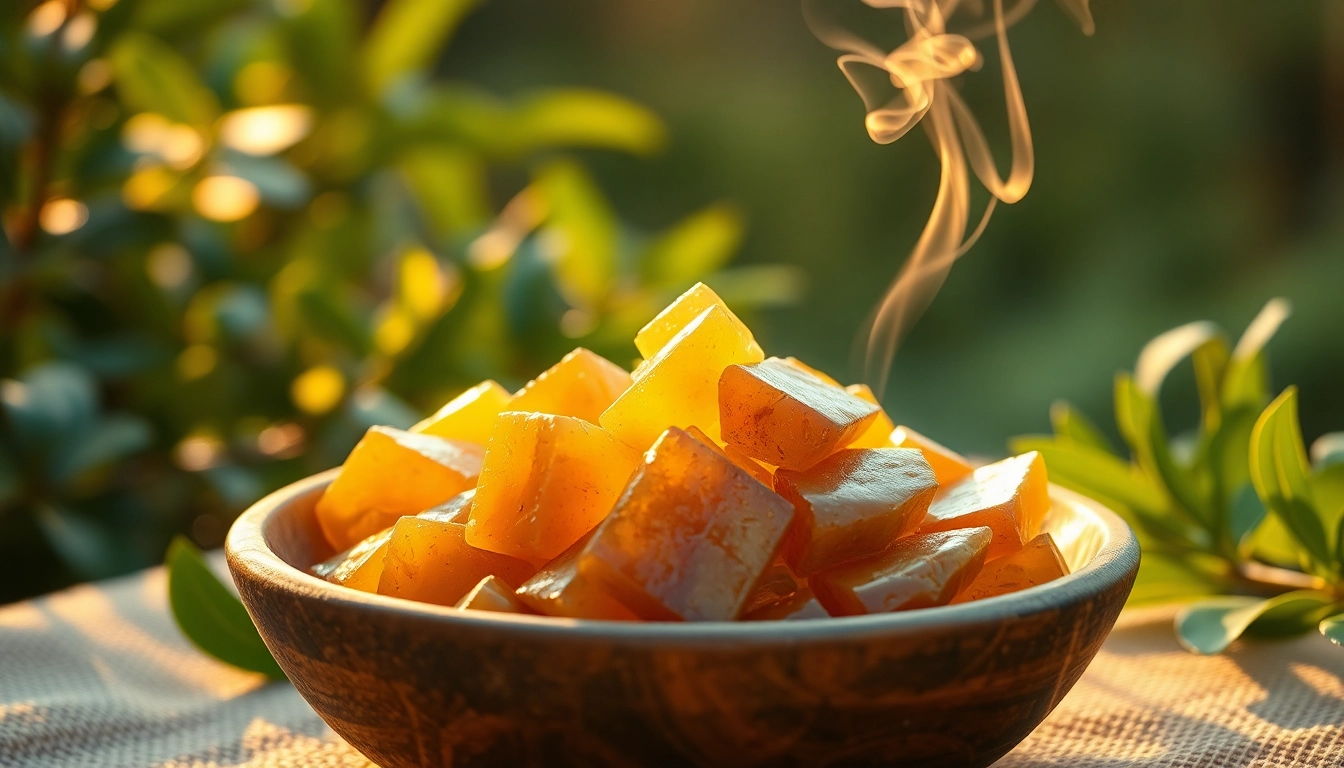Introduction to Louban Dakar
Louban Dakar, often referred to as Oliban, is an aromatic resin derived from the tree Boswellia Sacra, known primarily for its sacred and healing properties. Originating from regions such as Somalia and Oman, Louban Dakar has a storied history rich in cultural and spiritual significance. The resin is treasured not just for its fragrant smoke but also for its myriad health benefits, enhancing both physical well-being and mental clarity. This article dives deep into the wonders of louban dakar, exploring its origins, usage, health benefits, and more.
What is Louban Dakar?
Louban Dakar is the Arabic term for frankincense, a resin obtained from the Boswellia tree. Known for its milky droplets that emerge from the tree’s bark, this resin has been harvested for thousands of years, utilized in religious practices, medicine, and cosmetics. When burned, Louban Dakar produces a distinctive aroma that can vary from woody to citrusy, creating a calming atmosphere favored in spiritual rituals and relaxation therapies.
The Origin of Louban Dakar
The history of Louban Dakar can be traced back to ancient civilizations where it was highly prized for its fragrance and therapeutic properties. The Boswellia trees that produce Louban are predominantly found in the Arabian Peninsula, East Africa, and the Indian subcontinent. Each region’s trees yield a unique variety of resin, influencing its scent profile and quality.
Traditionally harvested by making incisions in the bark, the resin flows out, hardening under the sun. It has played a significant role in ancient trade routes, where it was often exchanged for gold and other valuable commodities. The resin’s significance in various cultures is reflected in its mentions in historic texts, including the Bible, identifying it as one of the gifts presented to Jesus by the Magi.
Cultural Significance of Louban Dakar
Beyond its aromatic properties, Louban Dakar holds cultural and spiritual significance across numerous civilizations. In many Middle Eastern and African traditions, the smoke from burning Louban is believed to purify spaces and enhance communication with divine spirits. It is often used in religious ceremonies, including those of Christianity, Islam, and various indigenous African beliefs.
In addition to spiritual practices, Louban Dakar is a symbol of hospitality and cultural pride. It is common in weddings and festive occasions where its fragrance is used to create a welcoming environment. The cultural stature of Louban Dakar exemplifies how natural resources can embody community values and traditions.
Health Benefits of Louban Dakar
The health benefits of Louban Dakar extend beyond its uses in cultural and spiritual contexts. Scientific research has begun to explore its potential medicinal properties. This section will investigate the various health advantages associated with Louban Dakar.
Medicinal Properties
Louban Dakar has been used in traditional medicine for centuries, purportedly addressing a variety of health concerns. The active compounds found in the resin possess anti-inflammatory, antioxidant, and antimicrobial properties. These compounds can aid in treating conditions such as:
- Arthritis: The anti-inflammatory effects of Louban Dakar are believed to alleviate symptoms associated with osteoarthritis and rheumatoid arthritis.
- Respiratory Issues: Traditionally used to treat asthma and bronchitis, the resin can soothe the respiratory system when inhaled as incense.
- Digestive Health: Louban Dakar may help improve digestion and reduce gastrointestinal discomfort, promoting overall gut health.
Mental Wellness and Stress Relief
The calming fragrance of Louban Dakar makes it a popular choice for stress relief and mental wellness. Studies suggest that inhaling its aroma can reduce anxiety levels, improve mood, and enhance overall mental clarity. The soothing scent can activate areas of the brain associated with emotional responses, thus promoting feelings of peace and relaxation.
Incorporating Louban Dakar into daily routines, such as meditation and yoga, can deepen the relaxation experience, making it easier for individuals to connect with their inner selves.
Traditional Uses in Medicine
In traditional medicine systems across Asia and Africa, Louban Dakar has played a vital role in holistic health practices. In Ayurveda, for instance, frankincense is used to balance bodily systems and enhance vitality. It may be applied in herbal remedies aimed at boosting immune function and alleviating chronic pain.
In addition, the utilization of Louban Dakar in traditional healing practices demonstrates a longstanding approach to healthcare that emphasizes the interconnectedness of mind, body, and spirit.
How to Use Louban Dakar
With its myriad uses, integrating Louban Dakar into daily life can enhance spiritual practices and promote wellness. Here, we outline various methods of application for this versatile resin.
Methods of Application
There are multiple ways to enjoy the benefits of Louban Dakar, including:
- Burning as Incense: One of the most common methods, burning Louban Dakar resin on a charcoal disc allows users to experience its aromatic effects throughout a room or area.
- Essential Oils: While the resin itself can be used directly, Louban is also distilled into essential oils for use in aromatherapy and topical applications when diluted.
- Chewing Gum: In some cultures, it is traditional to chew Louban, benefiting from its potential digestive advantages and freshening breath.
Using Louban Dakar in Daily Rituals
Incorporating Louban Dakar into daily rituals can elevate mindfulness practices. Here’s how to seamlessly integrate it into routine:
- Meditation: Burning Louban during meditation can create an ambiance conducive to deep reflection.
- Relaxation: Add Louban to an evening wind-down routine; its scent may assist in promoting restful sleep.
- Spiritual Practices: Use Louban in rituals to enhance spiritual experiences and create sacred spaces.
Incorporating Louban Dakar into Aromatherapy
Aromatherapy is a powerful means of harnessing the fragrant and therapeutic properties of essential oils, including those derived from Louban Dakar. By diffusing Louban essential oil, one can enhance mood, reduce anxiety, and promote relaxation. Combine it with other essential oils such as lavender for an even more calming effect.
Furthermore, topical applications of diluted Louban oil can provide localized relief for muscle pain or inflammation, showcasing its versatility beyond just fragrance use.
Varieties of Louban Dakar
Louban Dakar is not a monolith; it comes in various types each with distinct characteristics. Understanding the differences can help consumers select the best product for their needs.
Different Types and Qualities
The quality of Louban is generally influenced by its source. Here are primary categories of Louban Dakar:
- Somalian Frankincense: Known for its robust aroma, typically more pungent than its Omani counterpart.
- Omani Frankincense: Often regarded as the highest quality, Omani Louban is characterized by its milky appearance and delicate fragrance, mingling citrus and sweet notes.
- Yemeni Frankincense: This version is less common but valued for its unique, slightly bitter flavor.
Ethical Sourcing of Louban Dakar
The increasing demand for Louban has raised concerns about sustainability and ethical sourcing. Ethical harvesting practices ensure that Boswellia trees are not overexploited, preserving ecosystems and livelihoods of local communities. Buyers should look for certifications and vendor transparency regarding sourcing practices to ensure their purchase supports ethical production.
Comparative Advantages of Louban Dakar
When selecting Louban products, there are advantages to consider among various types. For instance, Omani frankincense is renowned not only for its fragrance but also for its high oil content, which translates into a more potent aroma and therapeutic efficacy. On the other hand, Somali varieties may be more accessible and affordable, appealing to consumers who are new to Louban.
Choosing the right variety can depend on personal preference, intended use, and budget, creating diverse opportunities for consumers.
Where to Buy Louban Dakar?
As interest in Louban Dakar grows, numerous purchasing options have emerged. Here are the best avenues for sourcing this sought-after resin.
Online Sources for Louban Dakar
There are several reputable online retailers where customers can find high-quality Louban products. Websites that specialize in natural remedies, holistic health, or essential oils often offer authentic Louban from credible sources.
Before making a purchase, it is also essential to read consumer reviews and check for return policies to ensure a satisfactory buying experience. Some trustworthy online platforms include:
- Natural health stores
- Specialty spirituality shops
- Aromatherapy suppliers
Local Markets and Vendors
For those who prefer shopping in person, local artisan markets, holistic health shops, and specialty import stores may carry Louban products. Engaging with vendors directly allows consumers to inquire about the sourcing and quality, fostering informed purchase decisions.
Choosing Quality Louban Dakar
Quality in Louban products often correlates with purity and authenticity. Here are key indicators of high-quality Louban Dakar:
- Appearance: High-quality Louban should have a translucent and shiny appearance, with a range of colors from light yellow to brown.
- Fragrance: The aroma should be rich and complex, with no synthetic additives or overpoweringly harsh scents indicating impurities.
- Vendor Reputation: A well-reviewed supplier is likely to sell authentic products; research feedback before purchasing.
Conclusion
The multifaceted benefits of Louban Dakar make it a remarkable natural resource worth exploring. From its rich historical roots to its health benefits and diverse applications, Louban has secured its place not only in cultural practices but also within modern holistic health. By understanding its qualities and ethical implications, consumers can make informed choices that honor both tradition and personal well-being.


